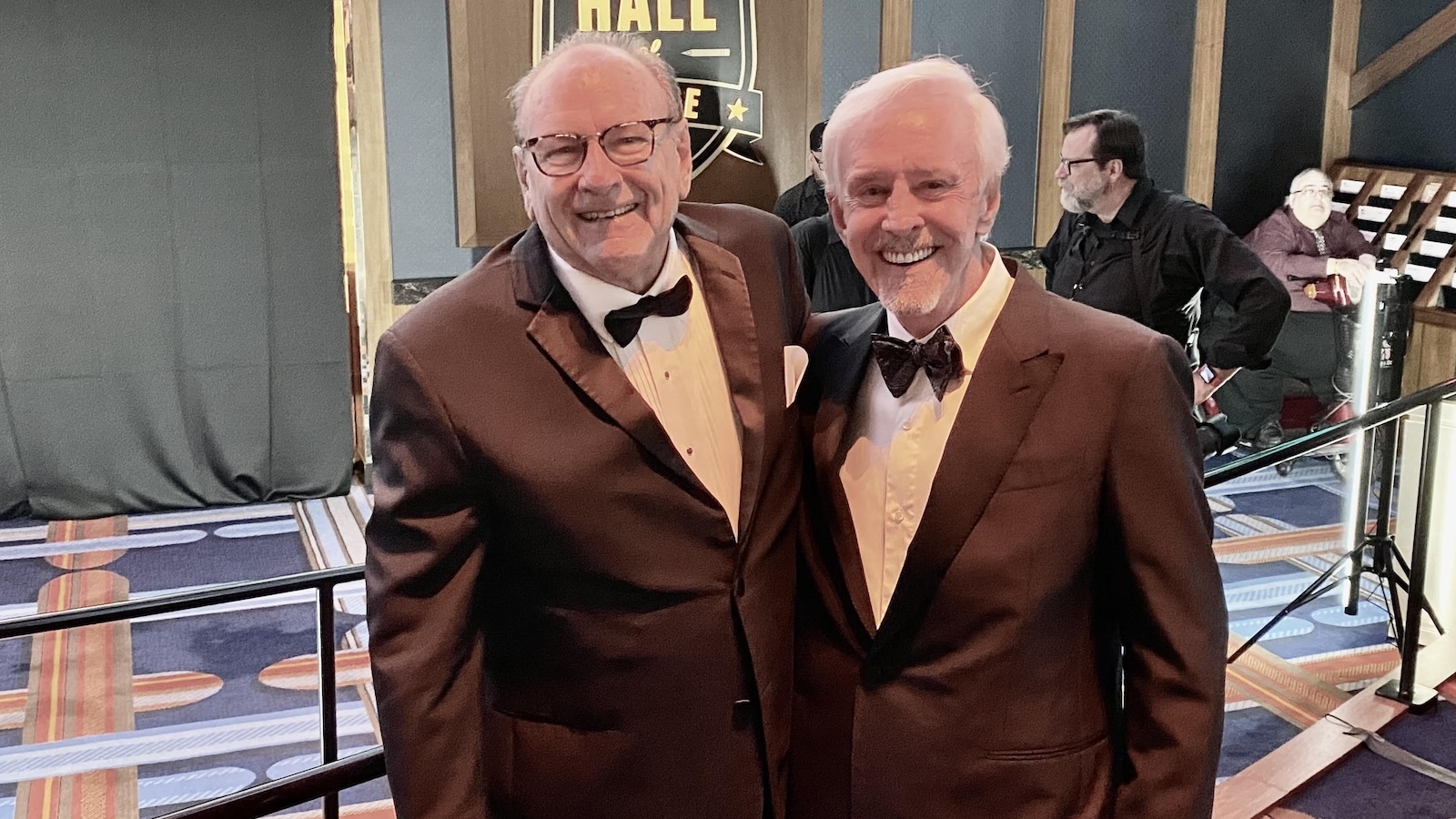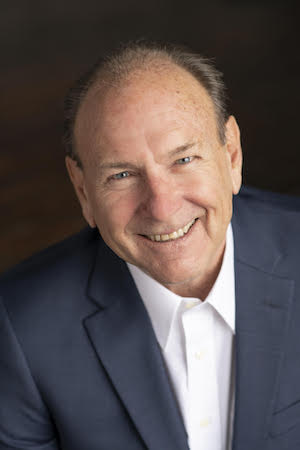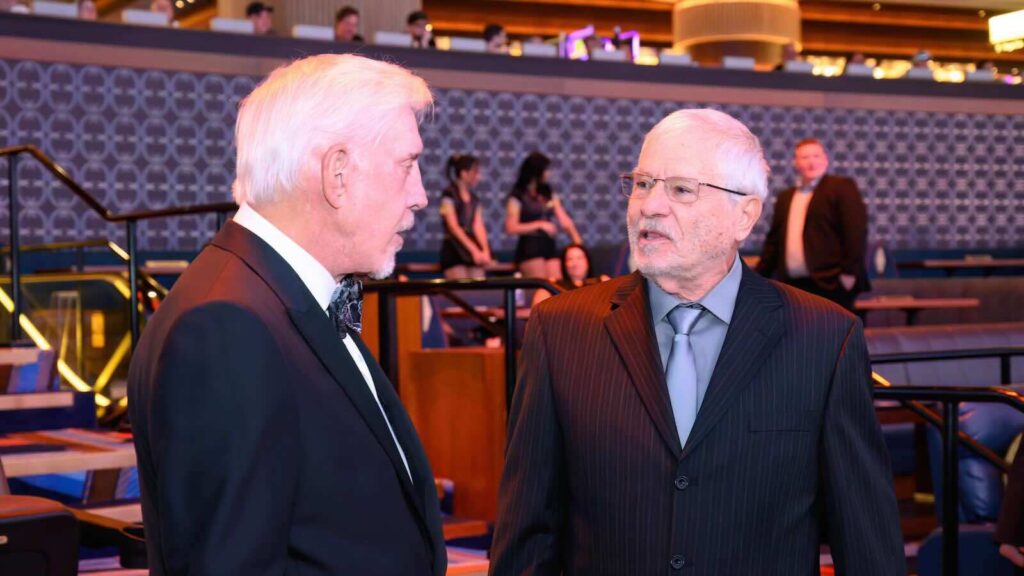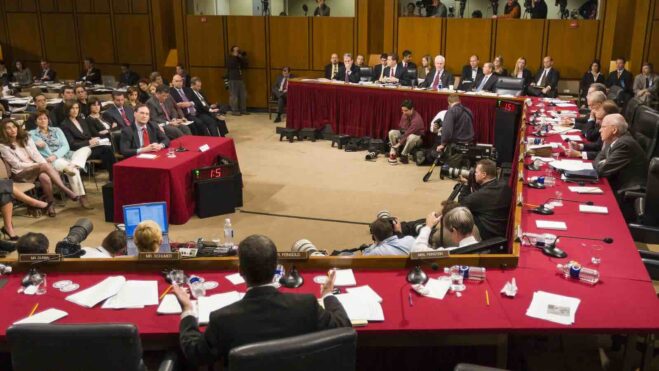Schuetz: Three Realities About Dealing Sports To Billy Walters
There's an upside to taking action from bettors who are sharper than the bookmakers
5 min

I recently had the opportunity to spend some quality time with Billy Walters. While I have known Billy for over 40 years, I have not had the chance to visit with him much during the last few decades.
The setting was in Pittsburgh, at the National Council of Legislators from Gaming States (NCLGS) 2024 Summer Meeting. Billy Walters and “Spanky” (Gadoon Kyrollos) had been invited to speak on a panel about modern sports betting, and I was invited to join them. The panel session was entitled “Making a Living Off the Odds.”

During our stay in Pittsburgh, Spanky treated our group to a private dinner in a special room within the casino’s steakhouse. We all talked about the old days and the new, and it was just one of those special evenings that are unfortunately too rare. We were all still talking and laughing about it the next day when we saw one another.
I fit into this panel because my background was as a Las Vegas casino executive with profit-and-loss responsibility for the books within the casinos I ran. The most noteworthy of these casino experiences, with respect to sports betting, was when I was the vice president of casino operations for the Stardust Hotel and Casino. This facility had a colorful past, as was partially chronicled in the movie Casino.
During my tenure at Stardust, I was blessed to have Scott Schettler as the book’s director. The Stardust Book was legendary — and Scott kept it that way.
Scott was something of a management challenge, and one of my first jobs was to stay between him and the corporate office. My second job was to stay between him and the Nevada Gaming Control Board. These two functions were quite time-consuming, for neither entity appreciated his honesty and directness.
I thought Scott was brilliant, in his own way, and he was a genius at managing the full-time chaos of running a very large book that dealt very high limits. I do not use the term “full-time chaos” lightly.
In 2023, more than 30 years after Scott and I worked together, I had the great honor of giving his induction speech into the Sports Gambling Hall of Fame at Circa in Las Vegas. It was a true pleasure, and no one deserved to be in that first class more. It also brought tears to my eyes.
Stardust memories
As mentioned, at the Stardust, we dealt very high limits, and the players in the world appreciated this. Back in the day, when a player came to Las Vegas, he or she was not in the mood to travel from location to location to get down. At the ‘Dust, they knew we had very high limits and could generally satisfy their appetite for action with one stop.
We also did not want a player to think he needed a reason to leave our casino. At Stardust, we dealt very high limits because we felt it was the correct way to run a book — and we also thought it was the correct way to run a casino.
During my tenure at the Stardust, one could not use a phone in the book. The Stardust had 11 payphones right outside the sportsbook entrance, and I was once out there visiting with the phone dude about them. He said that those 11 phones were the highest revenue-generating phones in the United States. I think that everyone who knew the scene at the Stardust believed that.
During our panel in Pittsburgh, one of the early subjects addressed the issue of internet-based books limiting the bet size for players who had the tendency to win. This can include not allowing a person to play on the site. This model was imported from England and came to be called “Ban & Bankrupt” there, where smart bettors were excluded or heavily limited, and poor players were encouraged to get more involved. That is, if a person could beat the books, they could not play, and if they were terrible, they were incented and encouraged to become more involved.
This process makes no sense to me. I do not think this model is sustainable, mainly because everyone seems to end up banned or bankrupt.
Public trust matters
One important aspect of my job was to make sure all of the action in the joint was square — that is, on the up and up. I also wanted to treat the winners well, for I wanted them back. I cannot imagine telling a roulette, baccarat, dice, or blackjack player that they had beaten me too often and that I wanted them to go away and never come back. It seems I would soon be managing an empty building.
The modern model of bookmaking over the internet reminds me of an art auction where the auctioneers only want people who know nothing about art at the auction. I suspect they could sell some poor-quality products to the dolts, but they are also leaving off a good portion of the market that could generate strong bidding action … and in the bookmaking business, bidding action is a pretty important thing.
This leads me to discuss three realities about dealing sports to Billy Walters. The first of these realities is that we let Billy make limit bets in our book, and as I mentioned, we had big limits.
Secondly, and this is probably no surprise to the people who know Billy, he beat us.

Now, at this point in this narrative, you are probably thinking that Richard was clearly not on a bonus program, for he was not taking care of the bottom line. That is not true, for my income did depend on the financial performance of the property.
The third point about dealing with Billy was that we considered him one of our best customers. That may sound like a funny thing to say about a guy who beat us up pretty good on occasion, but we considered Billy Walters one of our better customers because he was smarter than we were. The most important advice I can give in business is to work with people who are smarter than you are — and we did. If you think you are the smartest person in your business, you might have a problem.
Some points to contemplate here:
- A management team continually gathers data when running a book. You become a huge data receptor, be that data on where the action is coming from, the time of day, who is in the room, prior line moves, who made what plays, who was holding back, and dozens of other bits of information. And with Billy, his play was a huge chunk of information. When Billy made his play, we got smarter.
- We then had the challenge of demonstrating that we learned something from Billy’s play, which was basically reduced to taking the bet and moving the number.
If there is something to be learned here, it is that sound risk management is critical for a book to become viable in the long run. In order to become viable in the long run, you have to surround yourself with very smart people, for real booking is a tough business. At the Stardust, the very smart people we surrounded ourselves with were people like Billy.
And we treated them with respect.
—
Richard Schuetz entered the gaming industry working nights as a blackjack and dice dealer while attending college and has since served in many capacities within the industry, including operations, finance, and marketing. He has held senior executive positions up to and including CEO in jurisdictions across the United States, including the gaming markets of Las Vegas, Atlantic City, Reno/Tahoe, Laughlin, Minnesota, Mississippi, and Louisiana. In addition, he has consulted and taught around the globe and served as a member of the California Gambling Control Commission and executive director of the Bermuda Casino Gaming Commission. He also publishes extensively on gaming, gaming regulation, diversity, and gaming history. Schuetz is the CEO American Bettors’ Voice, a non-profit organization — of which Billy Walters is an honorary chairman — dedicated to giving sports bettors a seat at the table.






